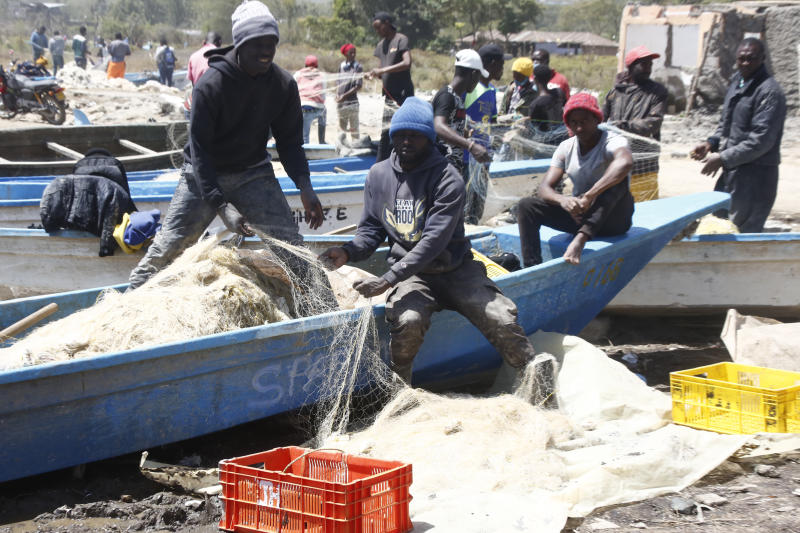Fishermen preparing their nets at the shores of Lake Nakuru. [Kipsang Joseph,Standard]
×
The Standard e-Paper
Smart Minds Choose Us

Fishermen preparing their nets at the shores of Lake Nakuru. [Kipsang Joseph,Standard]
Kenya loses up to Sh45 billion every year due to illegal and unregulated fishing, according to marine scientists.